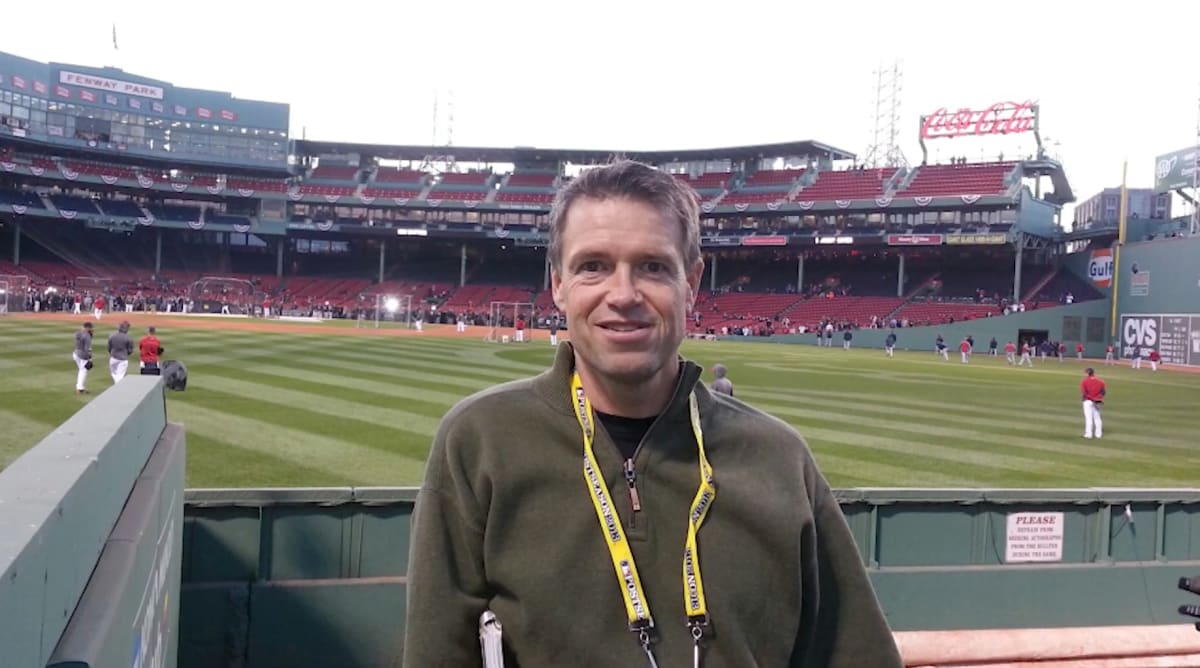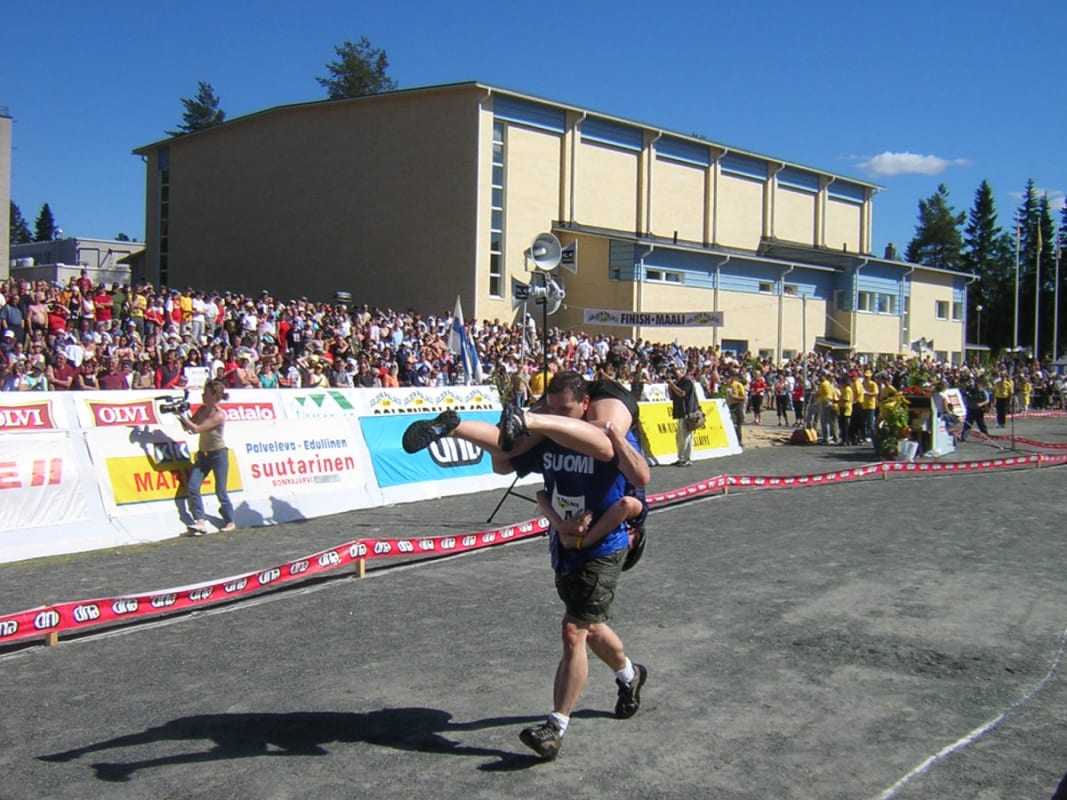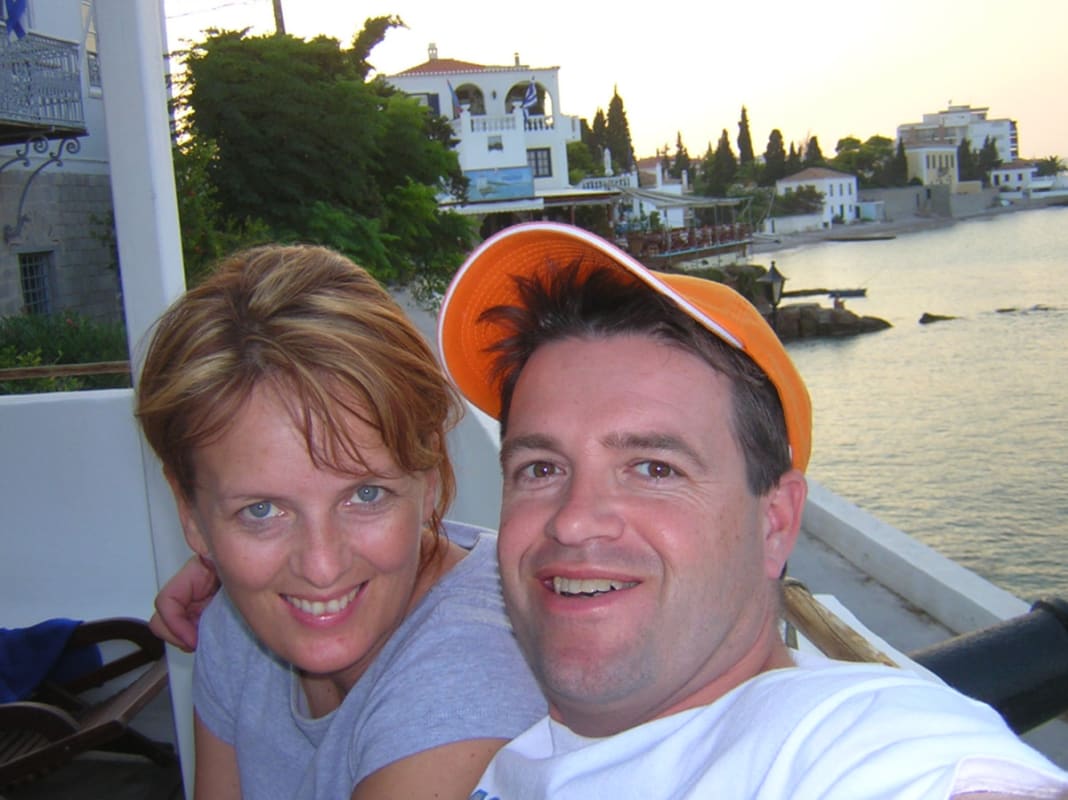Jim Caple had abibliophobia, the fear of having nothing to read, and kept three books in his computer bag as a remedy, so that no matter where he was in the world, he would never run out of words. Near the end of his remarkable life, cut short this month by dementia and Lou Gehrig’s disease, the sportswriter’s expansive vocabulary had contracted, and he seemed to lean on the same three utterances, repeated often: “Willie Mays,” “Novak Djokovic” and—in heaviest rotation at his house outside Seattle—“Sue Bird.”
But for most of his 61 years, he was never lost for words. It was in San Diego, in the press box at Jack Murphy Stadium in 1992, that Capes first asked me, “What are you reading?” and I nudged toward my fellow baseball scribe the hardcover tombstone I’d been lugging around the major leagues. It was an endless account of the ’88 presidential election by Richard Ben Cramer called What It Takes, a book so long (1,047 pages) and so heavy in the hand (1.63 pounds) that some critics referred to it as What It Weighs.

Courtesy of Vicki Schuman
That’s the first time I met him. The second time, a few weeks later, was in Minneapolis, at the Hubert H. Humphrey Metrodome. (In 1992, there were still stadiums named for sportswriters and politicians and other men of low public esteem.) Jim casually mentioned that he’d loved What it Takes, and a few other books he’d read in the previous three weeks, because when he wasn’t writing (about the Twins for the St. Paul Pioneer Press, and later about the world at large for ESPN.com) he was reading.
By age 29, Jim knew he was destined by MLB’s relentless schedule of nights and weekends to a lifelong bachelorhood watching baseball. Or so he told his Pioneer Press colleague Bob Sansevere in the Metrodome press box during an early-season Twins game in that team’s magical year of 1991. Sansevere, from his press seat, reached for the landline, dialed his single friend Vicki Schuman and handed the phone to Caple. That landline, it turned out, was a lifeline.
Jim and Vicki had their first date June 5, 1991, and were married during the seamhead solstice, the baseball writer’s narrow window between the winter meetings and spring training. Their wedding day was Groundhog Day—Feb. 2, 1996, the coldest day on record in Minnesota, when the temperature was -59.5 degrees. Spoiler: There would be six more weeks of winter no matter what the groundhog did. But Jim and Vicki’s marriage would be sun-kissed and eventful, governed by the sports calendar.
Most years, on Super Bowl Sunday, they flew to the Maui Marriott using Marriott points. Marriott points are to sportswriters what the doubloon was to 18th-century Spaniards—the coin of the realm. “We saw some nice Marriotts,” says Vicki with a laugh, a Minnesota native who never had to fear missing a Vikings game on Super Sunday.
Vicki worked in IT for Northwest Airlines—she flew for free—and the couple traveled the world together, to all the usual places and many of the unusual ones, 65 countries in all, many of them without Marriotts. Jim moved from the Pioneer Press to ESPN.com, covering various Olympics, Tours de France and tennis Slams with Vicki often by his side but occasionally on his back. She clung to him like an inverted backpack—the Estonian Carry position, competitors called it—when they raced as one in the Wife Carrying World Championships in Sonkajärvi, Finland. “Everything is going fine until my wife and I hit the water hazard,” Jim wrote in his piece. “It’s 3 meters deep, about 30 feet long and there is a fireman in scuba gear standing by in case of emergency. By the time I wade its length, I’m so exhausted that we do not so much step from the pool as evolve out of it, like the first amphibians to leave the oceans and crawl onto land.”
The baseball writer who thought he would never marry had been right about one thing: His life, it turned out, was a ball.

Courtesy of Vicki Schuman
In the last couple of years, as Jim began slipping deeper into dementia, words and memories and identities began to abandon him, until he could no longer recognize his closest friends. And yet he could still unfailingly summon three names: “Willie Mays,” “Novak Djokovic” and “Sue Bird.”
Why those three? What did they mean, this trio of GOATs?
“Willie Mays?” Jim was a Giants fan growing up because they were the nearest team to Longview, Wash., before the Mariners arrived in Seattle, and he heard Mays described on KSFO radio out of Candlestick Park. Mays was an uppercase Giant until Jim was 10, and a lowercase giant ever after. To Jim, Mays was childhood and baseball, two of life’s greatest gifts. He wore a Giants cap this summer while smiling on his deck, receiving dear friends—fellow baseball writers Jayson Stark and Jerry Crasnick—the week of the All-Star Game in Seattle. If Jim no longer recognized them, he enjoyed their company nonetheless.
“Novak Djokovic?” Jim wasn’t a tennis fan until Vicki patted the empty cushion next to hers on the couch, sat Jim down and implored him to watch this young Serbian who captivated her in one of his early Grand Slam appearances. As a kid in Clara City, Minn., Vicki watched “Breakfast at Wimbledon,” Bud Collins interviewing John McEnroe and Björn Borg and Chris Evert on NBC, and now she sold Jim on the charms of championship tennis. Soon after, and for years to come, Jim and Vicki were at the French Open or Australian Open or just watching on TV, and Jim was trying—with limited success, for an ESPN piece—to emulate Djokovic’s fanatical diet.
As for “Sue Bird,” the Seattle Storm point guard and Emerald City icon? Much as she’d done with tennis, Vicki had nudged Jim toward Minnesota Lynx games when they lived in Minnesota, and to Storm games after the couple moved to Seattle in 2000. Jim often covered the team at what is now Climate Pledge Arena and visited Vicki in the stands at halftime. The couple traveled to Moscow to have sushi with Bird and Diana Taurasi for the rollicking profile Jim wrote on the WNBA stars and college teammates playing professionally in the former Soviet Union. Like any of us in the sportswriting racket, Jim covered plenty of louts, but as Vicki said the other day: “Sue Bird was just so nice.”
And so, as Jim’s frontotemporal dementia progressed—FTD is the most common dementia for people under 60, the same kind Bruce Willis has—he and Vicki continued to attend Storm games. Jim had carried Vicki in Finland, and now Vicki was carrying him, mostly metaphorically but sometimes literally, with the help of friends and family. As late as the 2022 season, she labored to get him to Climate Pledge and up the stairs to the concessions when he got thirsty.
He had very few peeves—gas-guzzling SUVs, insufficient coverage of women’s sports—but even in his illness, Jim kept his journalist’s sense of dismay at injustice and unfairness. In dementia, that dismay manifested itself in this occasional phrase: “That is f---ing wrong.” Vicki took him to get a Pepsi at a Storm game, and, when the older gentleman behind the counter said, “Nine dollars, please,” Jim replied: “That is f---ing wrong!”
“It is wrong,” the guy replied. “I wouldn’t pay nine dollars for a Pepsi.”
To bring Jim out of these episodes, Vicki would say, as she did when buying the Pepsi, “Hey, there’s Sue Bird,” while pointing to the TV monitor or a decal on the arena wall. And Jim would brighten, calm down and say: “Sue Bird.”

Courtesy of Vicki Schuman
“It’s a short name and fun to say,” says Vicki. And so, over time, “Sue Bird” overtook “Novak Djokovic” and “Willie Mays” as his number-one mantra, and the kind of phrase a TV hypnotist might use to wake his patient from a trance, or possibly to put him in a happier one.
“Sue Bird,” like Citizen Kane’s “Rosebud,” represented much of what he had loved about his beautiful life with Vicki: traveling the world, covering games, and the couple’s domestic bliss with friends and family in the Pacific Northwest. The name “Sue Bird” was a kind of birdsong, a happy music heard throughout the day at their house.
This past March, his life circumscribed by FTD, Jim was formally diagnosed with amyotrophic lateral sclerosis (ALS). The two diseases are often associated. And if Vicki didn’t quite love that “Sue Bird” would likely be her husband’s last words—“it was kind of pissing me off, to be honest,” she laughs—she also knew that “Sue Bird” is not a bad exit line at all. By the time Sue Bird herself retired, in a blaze of words, with a 90-minute speech after her jersey was raised to the rafters following the Storm game last June 11, Jim’s attention span had vanished almost entirely. He didn’t have the patience for anything longer than a music video. And yet there were Jim and Vicki, on the edge of their couch, watching on YouTube, hanging on Bird’s every word: Vicki in her No. 10 Storm jersey, Jim in his well-worn and much-loved T-shirt emblazoned “Sue Bird Forever.”
Sue Bird Forever? Not exactly. On Sunday, Oct. 1, the final day of the baseball regular season, at home outside Seattle, Jim’s lifetime of words came to an end. The last words uttered by the wordsmith were not, as it happened, “Sue Bird.” The last words Jim summoned before passing into eternity were “Vicki Schuman.”
Vicki Schuman Forever. The writer knew, to the very end, the power of a closing line.







